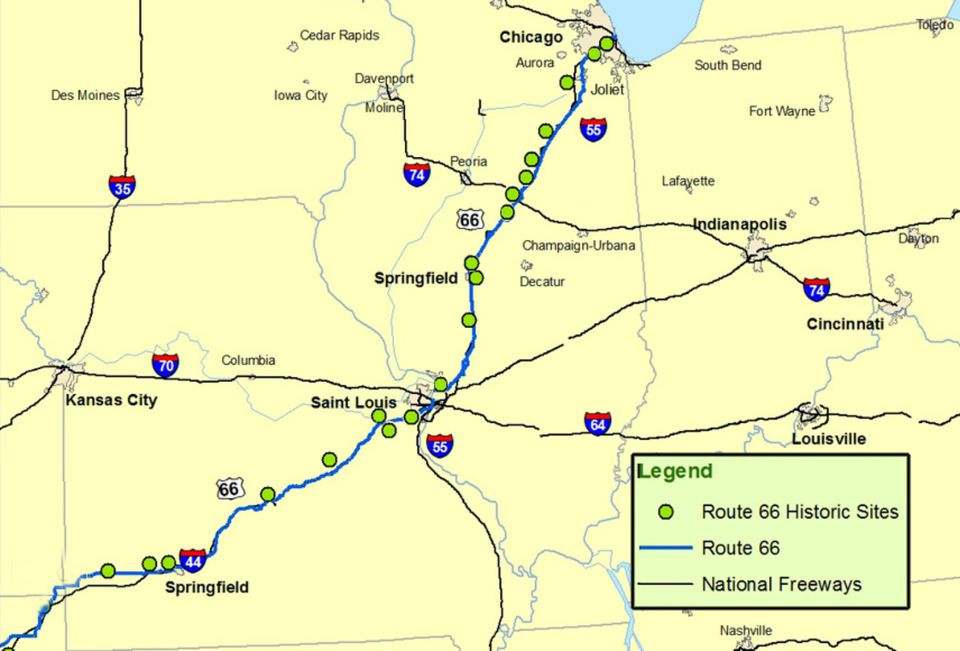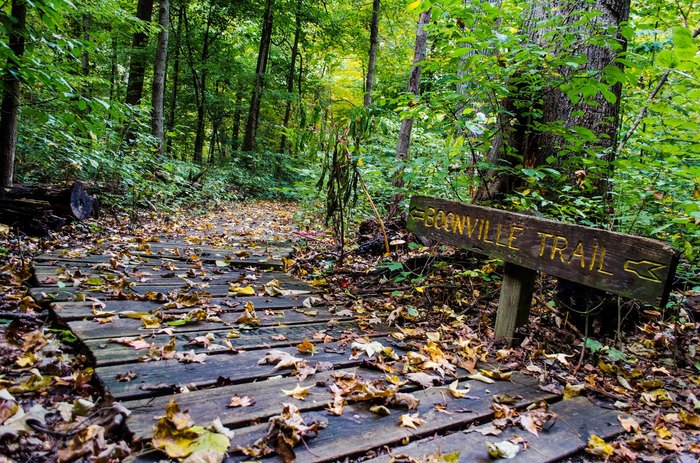
There is no other home for you, there is nowhere for you to go, because you are too American. You live in the dead center — the dead, rotting center– of America, of every battle and every misdeed, every hideous thing that was said and done, every cemetery split to accommodate the dead of both the Union and the Confederacy. If they try to carve up the country, you do not know what will happen to your city or your state or your family of your friends. You do not know if you are north or south of east or west. You are a Gateway and a Memorial, you are the Lewis and Clark landing and the Mother Road, you are the Louisiana Purchase and you are one bad bargain.
Sarah Kendzior
It’s been cold and wet, and the dirt path through the woods is slick with mud that clings to the soles of my shoes. The skies are full of clouds; they’ve been that way for a week. But it’s actually quite beautiful in the early morning, when the skeletal oaks and maples and hackberries and sycamores are backlit against the new light of day, monochrome and mystical, a reminder that the new year has not quite arrived, that we are still sweeping the remnants of the old one from our porches, last November’s wet leaves and fairy wings.
I’ve been reading Sarah Kendzior’s They Knew, her latest attempt to wake us from our stupor and acknowledge the mess we’re in. The quote above is from somewhere in its midsection, in a chapter called “America is Purple, Like a Bruise.” Indeed.
Sarah Kendzior lives in St. Louis, three hours to the west of me and north of the confluence of her river (the Mississippi) and mine (the Ohio.) Her sense of belonging to her patch of flyover country — “there is no other home for you” — is not one I’ll ever know; I’m still trying to work out why I’m here. But the overall sentiment, that of being bound up in this dark heart of America, resonates.
As Nanci Griffith sang, “I am guilty, I am war, I am the root of all evil.”
They Knew chronicles the history of rampant corruption and conspiracy within various departments and agencies of the government, and the memory hole into which so many terrible crimes are dumped, all of it compounded by the complacency of those who would rather believe that things can’t be that awful or surely someone would have fixed it by now.
Surely.
The greatest education I ever received was when I worked for a corporate communications firm that specialized in crisis management. It was there that I learned that powerful people are rarely concerned with fixing anything. Why would they be? They are insulated from the brokenness; indeed, the brokenness is often the point, being as it allows for more wealth extraction. Health care, prisons, higher education, news media, housing — why fix what’s broken when you can turn it into a profit center?
This is not cynicism. This is the culture of transaction and extraction expressing itself through its human interlocutors, and those interlocutors are sociopaths.
Just the facts, ma’am.
January is a hard month. A beginning that isn’t. Not the best month, perhaps, to read a book like Kendzior’s, to be reminded that things are awful and nobody’s coming to the rescue.
And the sky is still grey.
But there’s blue up above, and every now and then a gap in the clouds gives us a glimpse of it. (Last Friday that glimpse was named E. Jean Carroll.) So let’s have a potluck, so much more neighborly than a revolution. Bring the guitars. We can sing some songs by Woody and Pete. Maybe I’ll bake a pie.






